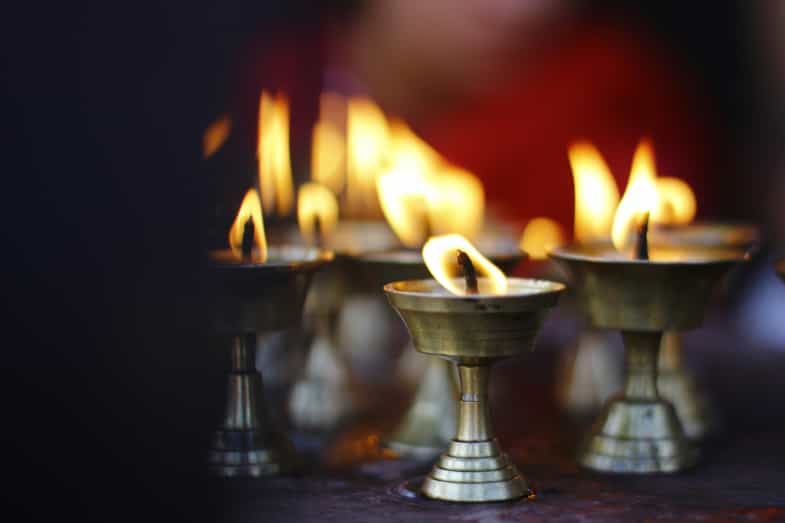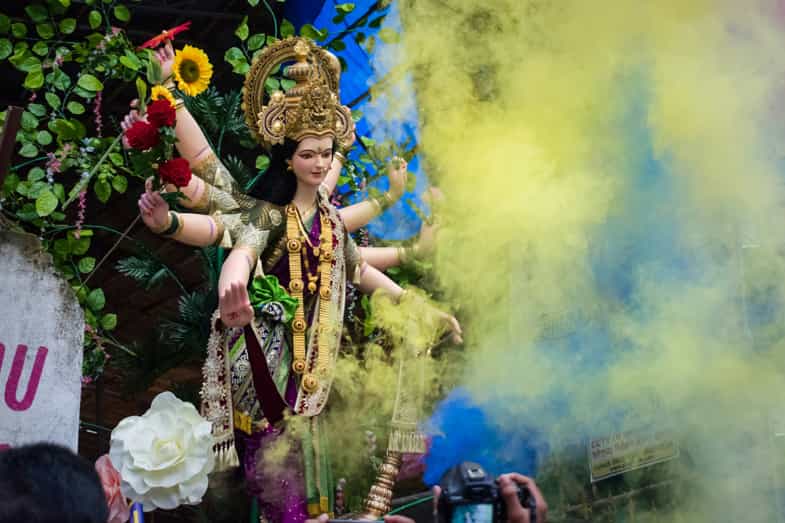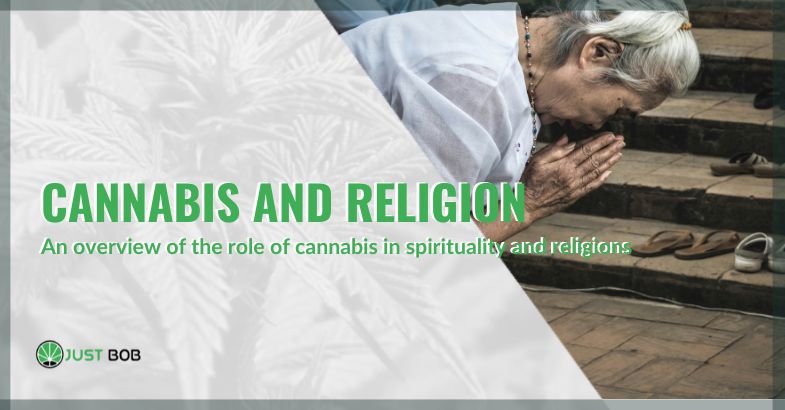Modified on: 28/09/2024
An overview of the role cannabis plays in spirituality and religions around the world
Today we wish to address a sensitive topic: the relationship between cannabis and religion. The interconnection between psychoactive substances and spirituality dates back millennia and can be traced in various cultures and spiritual traditions around the world. Many ancient civilisations used psychoactive substances, including cannabis, as tools for spiritual exploration, as if they could bring the individual closer and connect him or her to the divine through altered states of consciousness.
This link between psychotropic substances, precursors of hashish and THC, and spirituality somehow reflects the human being’s search for transcendental experiences and the desire to connect with the sacred through different pathways.
Where does it all start? Let’s begin!


Brief historical overview
The use of cannabis for religious purposes has ancient roots dating back thousands of years. One of the earliest historical mentions of cannabis in religious contexts dates back to ancient Hinduism, where it is associated with the god Shiva and used during ritual ceremonies to facilitate meditation and spiritual contemplation.
In addition, cannabis has a long history of use in the spiritual and religious practices of many other ancient cultures, including ancient Zoroastrianism, Native American tribes, and the ancient civilisations of Central Asia.
Over the centuries, the use of cannabis for religious purposes has been present in various spiritual traditions, albeit with varying degrees of acceptance and diffusion. For example, in Rastafarianism, a religion born in Jamaica in the 20th century, cannabis, known as ‘ganja’, is considered sacred and is used as a sacrament during religious ceremonies. This practice reflects the Rastafarians’ belief that cannabis facilitates communication with God and promotes spiritual and physical healing.
In summary, the use of cannabis in religious contexts has a long and diverse history spanning many cultures and spiritual traditions. This complex and multifaceted history highlights the significant role that cannabis has played in the context of human spiritual practices throughout the centuries.
Possibly throughout the history of belief and spirituality, some cultures might also have used CBD and its derivatives to meditate and in complete relaxation achieve some form of contact with the divine.
Cannabis in Hinduism
One of the earliest historical mentions of cannabis in religious contexts dates back to ancient Hinduism. Indeed, in the ancient sacred scriptures of India, such as the Vedas and the Upanishads, cannabis is associated with the god Shiva, one of the principal deities of Hindu tradition.
Shiva is often depicted with a wreath of cannabis leaves, and is believed to have discovered the plant’s properties during meditation. Have you ever noticed this detail? You will probably notice it from now on! Within Hindu spiritual practices, cannabis is used during ritual ceremonies, known as ‘puja’, to facilitate meditation, expansion of consciousness and connection with the divine.
According to Vedic Hindus, cannabis, known as Bhang, was considered to have magical powers and was used by shamans in purification rituals or for healing purposes.
In the Vedas, Shiva is credited with the creation of cannabis, called ‘angaja’, meaning ‘born from the body of God’. Legend has it that Shiva took shelter in the shade of a hemp plant, drank its leaves and enjoyed its taste, making it his favourite food. Shiva’s wife, Parvati, used to say ‘Bangi, bangi’ to encourage the plant to blossom quickly and luxuriantly.
In Hindu ritual practices, cannabis is taken in three main ways: bhang, a milky drink made from the leaves and buds of hemp; charas, a type of hashish made from the resin of hemp; and ganja, the buds that are smoked.
Even today, the consumption of cannabis in these forms remains a sacred act in India, an integral part of many religious ceremonies.
Read also: Everything you need to know about CBD bioavailability
Zoroastrianism and cannabis
The cannabis plant was also known in another long-standing context: Zoroastrianism.
Zoroastrianism, also known as Mazdeism, known in Avestic as mazdayasna, meaning “worship of Ahura Mazda” or “worship of Mazda”, is a religion founded on the teachings of the prophet Zarathustra, or Zoroaster. During a period stretching from the 6th century B.C. to the 10th century A.D., it was the principal religion in the Iranian and Central Asian regions, both theologically and demographically and politically.
This religious belief had fire as its central symbol of divinity and innocence. Although there is no concrete evidence of the use of cannabis directly in Zoroastrian sacred texts, some historical sources suggest that the plant may have been used in religious ceremonies to induce believers into states of ecstasy and to facilitate communication with deities. However, the precise interpretation of the role of cannabis in Zoroastrianism remains a matter of debate among scholars.
The use of cannabis by Rastafarians
Rastafarianism, a religious belief that celebrates the use of cannabis, has many parallels with Judaism and Christianity. The Bible constitutes the main sacred text of Rastafarian doctrine, with followers worshipping Jah, a shortened form of Jehovah, the divine name. Rastafarians live by specific precepts, many of which concern their diet. The Ital diet, based on organic and natural foods, is widespread, while many follow the prescriptions of Leviticus, avoiding pork and shellfish, and some opt for vegetarianism or veganism.
Cannabis plays a central role in the spiritual ceremonies of the Rastas, who consume it ritually, often during gatherings known as groundings. During these occasions, accompanied by drums and hymns, cannabis is consumed to strengthen the bonds between Rastafarian followers. Considered a sacrament, cannabis for Rastafarians is a source of peace, love and introspection, facilitating the search for inner divinity.
The number of Rastafarians worldwide is currently estimated at between 700,000 and one million.


Cannabis in Judaism and Christianity
The use of cannabis in ancient Jewish tradition remains a debated topic to this day. In 2020, Israeli archaeologists found traces of cannabis on artefacts in a temple dating back to the 8th century BC in Tel Arad. Some researchers suggest that ‘kaneh bosem’, a plant mentioned in the Book of Exodus and used for the extraction of sacred anointing oil, may refer to cannabis.
Despite the uncertainties surrounding the use of cannabis in antiquity, it is nowadays the case that rabbis have conflicting opinions on the subject. In 1978, the Orthodox rabbi Moshe Feinstein pointed out that marijuana is forbidden by Jewish law because it can hinder prayer and Torah study. Other rabbis, however, openly support the therapeutic use of cannabis.
As in Judaism, there are also divergent opinions about cannabis in Christianity. On the one hand, both the Orthodox and Catholic churches and some Protestant churches condemn the use of cannabis, while on the other hand, some parts of the Protestant Church such as the Presbyterian or Episcopalian churches approve of its therapeutic use.
Interestingly, some scholars point out how even some passages in the Bible indirectly mention the use of cannabis:
“Behold, I give you every herb that bears seed upon the face of the whole earth, and every tree that bears seed-bearing fruit; this shall be nourishment for you”.
At the same time, however, we also find a recommendation not to give in to temptation and an exhortation to remain clear-headed:
“Be sober, be vigilant, for your adversary, the devil, prowls around like a roaring lion, seeking whom he may devour”.
According to the first letter of Peter.
So we can well imagine the debate among scholars of the sacred scriptures and how a trip to our CBD online shop at this point in the reading might be the break you need.
The role of cannabis in Buddhism
Buddhism originated in India between the 6th and 4th centuries BC and has as its fundamental principles the concepts of karma, rebirth and liberation from pain. However, Buddhists have different views on the use of cannabis.
There are some currents that are strongly against its consumption and others that are open to its use. Despite these differences, we know that cannabis played an important role in the Buddha’s life and on his path. In fact, during his path to enlightenment he followed a diet based on the intake of one hemp seed per day.
There are a set of rules in Buddhism called the Five Precepts that include the prohibition of alcohol and drugs. However, in some pages of the Mahakala Tantra (one of the sacred texts) we find the prescription of cannabis and other psychoactive substances for therapeutic purposes.
All in all, we can say that the three main Buddhist traditions have quite different positions on cannabis:
- in theravada Buddhism, i.e. in its oldest form, a more traditional approach is maintained and the Fifth Precept is adhered to, thus opposing the use of all drugs, including cannabis;
- in mahayana Buddhism, which accepts the main teachings of the Buddha but is more open to innovation, we find in its code of ethics the acceptance of what is beneficial to the person. This tells us that they are open to the therapeutic use of marijuana;
- lastly, in vajrayana Buddhism, it emphasises the concept of karma and has a more indulgent approach to both cannabis and other taboos than the others. It encourages practitioners to find purity in everything including cannabis.
Interesting link between cannabis and religion isn’t it? If you want to know more stay tuned to Just bob.
Conclusions
The many ancient connections between cannabis and religious practices (we have considered the best known) have led us down a new path of knowledge. Evidence dating back thousands of years reveals the use of cannabis as a tool for spiritual exploration in various cultures and religious traditions, giving us a profound insight into the human desire to connect with the divine through altered states of consciousness.
From ancient Hindu scriptures associating cannabis with the god Shiva, to the sacred ceremonies of the Rastafarians of the last century, who consider it a sacrament for communication with God, cannabis has played a significant role.
However, opinions on its use within different religious traditions vary widely. Some faiths welcome it as an integral part of their spiritual practices, while others condemn it on ethical grounds.
Despite the divergences, the use of cannabis remains a relevant aspect of the spiritual lives of many people around the world, representing a point of connection between the search for transcendence and different expressions of human faith.
Takeaways
- Cannabis has been intertwined with spiritual practices for millennia, spanning various cultures and traditions globally. Its use as a tool for spiritual exploration reflects humanity’s quest for transcendental experiences.
- In Hinduism, cannabis is associated with the god Shiva and has been used in rituals to facilitate meditation and spiritual connection. Its consumption in various forms remains an integral part of religious ceremonies in India.
- Rastafarianism considers cannabis sacred, using it ritually in ceremonies to strengthen spiritual bonds and promote peace and introspection among followers.
- Views on cannabis vary within different religious traditions. While some embrace its therapeutic benefits, others, like Judaism and certain branches of Christianity, oppose its use due to ethical considerations.
- Buddhism exhibits a range of perspectives on cannabis, from strict opposition to acceptance for therapeutic purposes. The varying stances reflect the diversity of Buddhist traditions and interpretations of religious teachings.
FAQ
What is the historical overview of cannabis in religious contexts?
Cannabis has ancient roots in religious practices, dating back thousands of years. It has been used in various cultures and spiritual traditions around the world, including ancient Hinduism, Zoroastrianism, Native American tribes, and Rastafarianism.
How is cannabis used in Hinduism?
In Hinduism, cannabis is associated with the god Shiva and is used during ritual ceremonies to facilitate meditation, expansion of consciousness, and connection with the divine. It is consumed in various forms such as bhang, charas, and ganja.
What role does cannabis play in Buddhism?
Buddhists have different views on cannabis, with some traditions opposing its consumption while others are more open to its use. Cannabis is mentioned in some Buddhist texts for therapeutic purposes, but the Five Precepts generally prohibit the use of drugs.









